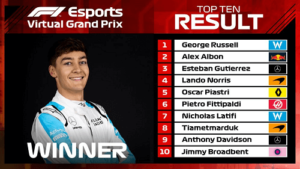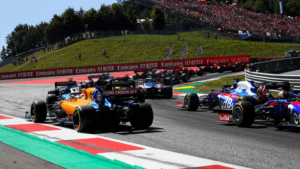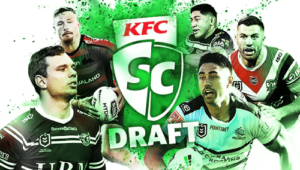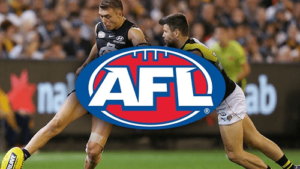Top eSports Terms & Definitions
 Electronic sports terms and definitions are constantly updated. So, if you want to learn all of the eSports terms that could possibly be used in betting, you’ve come to the right place. eSports terms may borrow some words from traditional sports or other pastimes, but they are officially in a league of their own.
Electronic sports terms and definitions are constantly updated. So, if you want to learn all of the eSports terms that could possibly be used in betting, you’ve come to the right place. eSports terms may borrow some words from traditional sports or other pastimes, but they are officially in a league of their own.We’ve put this guide together to help new bettors understand commentary and bets for eSports slang easily. This list will occasionally be updated if new eSports definitions are added to the roster.
The rise of competitive online gaming has created a slurry of strange terms that could easily confuse bettors. While we can’t claim to know all of them, we have organised the most commonly used eSports slang with straightforward definitions below. After all, we all had to start somewhere and most video games have their own jargon anyway.
So, if you’re already familiar with our lists, try some of our recommended eSports betting sites below to test your knowledge.
Popular eSports Bookmakers
| Betting Site | Best Feature | Rating | Visit Site | |
|---|---|---|---|---|
| Embodiment of Synergy in the AU Betting Industry! | ||||
1  | Great sports coverage | UniBet Sportsbook | Bet Now | |
| Key Player on the AUS Betting Scene | ||||
2  | Lottery Bets | TheLotter Sportsbook | Bet Now | |
| Unique Betting Product - Lotto Result Betting | ||||
3  | Streaming Expert Edge | Titanbet Sportsbook | Bet Now | |
| Reliable Bookmaker with Flawless Track Record | ||||
4  | Betting Exchange | YouWager Sportsbook | Bet Now | |
| Unique Betting Product – So Far Undisputed | ||||
Full List of Common eSports Terms
Even if you don’t play games made popular by the eSports industry, some of these game terms could be helpful. Younger generations will likely have heard them in passing, and older generations could have come across one or two before they became part of the eSports lexicon.
Any competitive game could have between ten and twenty words in common. For example, almost all of them have some acronyms that are regularly used.
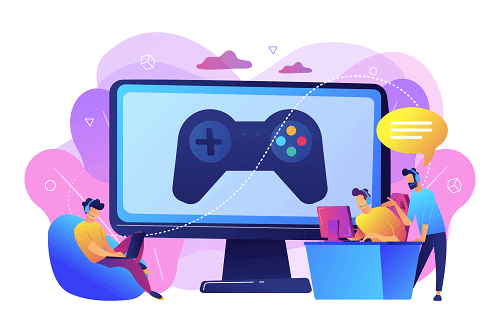
Gameplay eSports Terms: A-F
- Abilities – are generally the game-specified skills of certain characters that can be used by gamers.
- Ace – when all members of one team are ‘dead’, the opposing team can progress unhindered.
- Aggro – having a strong offensive strategy.
- Auto Attack – skills in the game that are built into the players’ skillset. Characters will automatically attack nearby units without prompting.
- Ban – in many games, teams can choose to eliminate certain classes or characters from selection.
- Brush/Bush – sections of the game screen which aren’t visible to players unless they are entered.
- Buff – improving skills or attack power/damage through external objects. Or an increase in the power of a player by meeting game conditions.
- Build – improving a character by buying gameplay items and upgrades specific to their character.
- Burst – when a lot of damage is distributed in small increments.
- Carry – colloquial term for a player who is getting the most kills in a game.
- Cool-down – some games have timers for uses of a skill or object that will count down until the next use.
- Farm – an old term for working to meet objectives such as game money or wins in video games.
- Feed – a player intentionally getting killed by the other team to give them points.
- Flame – getting angry over gameplay and bad-mouthing others.
Gameplay eSports Terms: G-T
- Gank – ambushing an enemy player by distracting them in a team tactic.
- Grief – complaining constantly about the other team or fellow players.
- Inting – intentionally losing games.
- Laning – meeting objectives in certain areas of the map.
- Map – designated game area for players to duke it out.
- Meta – this is a specific way of playing the game using an effective style. In essence, this can refer to team compositions, play styles, and characters.
- Minions – a common terms for non-player characters in the game.
- Nerf – an update to intentionally lower the power of an item or character by the developer.
- Objective – game-specified targets that reward players for meeting them.
- Push/ Split-Push – a technique used in arena-type games that forces opposing teams to split their objectives by taking another.
- Rotation – used to describe members of a team moving over the map, or refer to the optimal order for abilities.
- Rush – a quick attack on opponents before they can defend in order to push objectives or buy time.
- Squishy – typically refers to a weaker character that needs certain items to become effective. All characters start at this level.
- Tilt – playing badly due to frustration or anger.
eSports Terms: Acronyms
- AFK – away from keyboard.
- AOE – Area of Effect
- DLC – expansion of original game.
- DPS – damage per second.
- FPS – first-person shooter games.
- HP – health points.
- IRL – in real life.
- KDA – kills/deaths/assists.
- LAN – local area network, used to keep the game fair inside the arena.
- MOBA – Multiplayer Online Battle Arena.
- NPC – Non-Player Character controlled by the game.
- OP – over-powered.
- PUG – pick-up game, generally a group of players from various teams playing for fun.
- RNG – random number generator used to randomly select rewards.
- RTS – Real Time Strategy games.
- XP – experience points, used to level up the character and increase their efficacy.
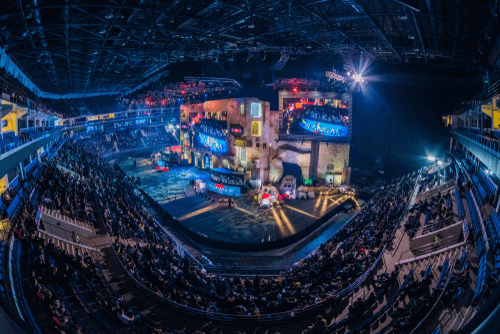
Popular Video Game Publishers
Since there are thousands of video games and publishers in the world, we’ll focus on the companies that have created the most popular eSports titles.
Activision
As one of the oldest game companies (est. 1979), this publisher is known as one of the first to create video games. Activision are the creators of the Atari game system. They’ve also acquired many independent companies associated with gaming.
They own Blizzard, Vivendi and Sierra Studios. They are also the creators of the Call of Duty franchise. In addition, they acquired Major League Gaming, one of the oldest gaming leagues in the world.
Blizzard
This is an iconic company that is familiar to almost every gamer because they created World of Warcraft and StarCraft. StarCraft is one of the first eSports titles with a successful league. They also develop Hearthstone and Overwatch.
In 2008, they combined with Activision to become Activision Blizzard. More importantly, they have one of the most used game launchers in the industry.
Electronic Arts (EA)
Nowadays, EA is infamous in the gaming industry for poor decisions. However, they do have a string of successful eSports titles. Namely: Madden, FIFA, NBA Live and Battlefield. Still, they aren’t as involved in eSports as other publishers.
Riot Games
This publisher has one successful game in the eSports industry: League of Legends. Even though their portfolio is so small, League of Legends has the biggest following in eSports. Their main draw is the fact that the game is free to play, but they offer real money items.
Valve
Historically, Valve has always been part of the video gaming industry. Their breakout title was Half-Life, which inspired many first-person shooter eSports games. Moreover, they created the Counter-Strike series, Day of Defeat, and Team Fortress.
In addition, their Steam PC client is one of the most used in the world, with ground-breaking features, including allowing smaller publishers to sell games on the Steam Store.




